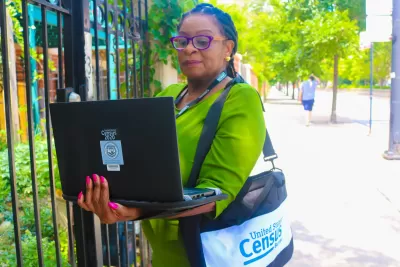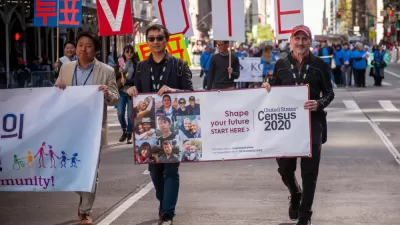An undercount is likely this year, particularly in communities that are traditionally underrepresented. As a result, cities will not have access to crucial federal funds over the next decade.

The census deadline is approaching, and it could be devastating for cities across the country if people are not counted.
"What’s at stake is both political representation and a share of the trillions of federal dollars over the next decade that will be distributed based on population. An undercount in communities that have already been disproportionately affected by the coronavirus could exacerbate the very inequities the virus itself has exposed," report Nolan D. McCaskill, Alexander Nieves, and Michelle Bocanegra.
The pandemic, the economic downturn, and social unrest have made the situation extremely difficult for mayors, who now have a multitude of crises to contend with and less time to make sure the census is carried out properly. The difficulties have only been compounded by a shortened timeline and the Trump administration’s ongoing attack on immigrants.
"Advocacy groups focused on the census warn that historically undercounted communities — low-income, immigrant and rural communities, communities of color and American Indian and tribal communities — are poised for severe undercounts this year," say McCaskill, Nieves, and Bocanegra.
Cities and states had planned engagement and outreach efforts for years, but the pandemic has sidelined those initiatives. "Mayors, nonprofits and other census advocates have decried the Trump administration’s new deadline to complete census data collection. The timeline was extended to Oct. 31 due to the pandemic, but then pushed up to Sept. 30 earlier this month," they note.
FULL STORY: Cities risk losing out on trillions in federal aid as census deadline looms

Alabama: Trump Terminates Settlements for Black Communities Harmed By Raw Sewage
Trump deemed the landmark civil rights agreement “illegal DEI and environmental justice policy.”

Study: Maui’s Plan to Convert Vacation Rentals to Long-Term Housing Could Cause Nearly $1 Billion Economic Loss
The plan would reduce visitor accommodation by 25% resulting in 1,900 jobs lost.

Planetizen Federal Action Tracker
A weekly monitor of how Trump’s orders and actions are impacting planners and planning in America.

Waymo Gets Permission to Map SF’s Market Street
If allowed to operate on the traffic-restricted street, Waymo’s autonomous taxis would have a leg up over ride-hailing competitors — and counter the city’s efforts to grow bike and pedestrian on the thoroughfare.

Parklet Symposium Highlights the Success of Shared Spaces
Parklets got a boost during the Covid-19 pandemic, when the concept was translated to outdoor dining programs that offered restaurants a lifeline during the shutdown.

Federal Homelessness Agency Places Entire Staff on Leave
The U.S. Interagency Council on Homelessness is the only federal agency dedicated to preventing and ending homelessness.
Urban Design for Planners 1: Software Tools
This six-course series explores essential urban design concepts using open source software and equips planners with the tools they need to participate fully in the urban design process.
Planning for Universal Design
Learn the tools for implementing Universal Design in planning regulations.
Caltrans
Smith Gee Studio
Institute for Housing and Urban Development Studies (IHS)
City of Grandview
Harvard GSD Executive Education
Toledo-Lucas County Plan Commissions
Salt Lake City
NYU Wagner Graduate School of Public Service





























